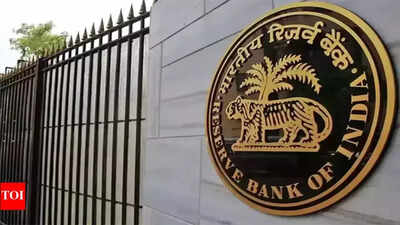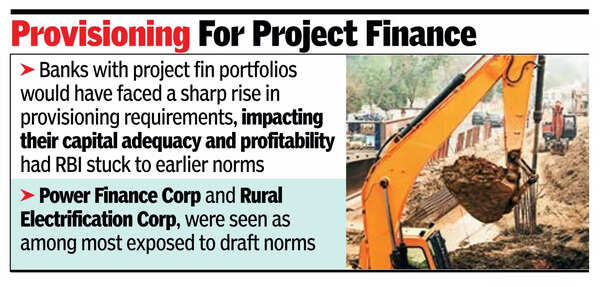
MUMBAI: RBI has eased regulations for project financing, which will make it less expensive for lenders to provide loans for infrastructure and industrial projects like roads, ports and power plants. The move acknowledges varying risk levels across sectors.The regulator has finalised its project finance guidelines, effective Oct 1, 2025, offering more flexible and sector-specific norms. Key changes include reduced general provisions for under-construction and operational projects. Penalties for project delays have also been eased. In the earlier draft, a delay beyond two years (infrastructure) or one year (non-infrastructure) attracted a 2.5% provision. Now, it’s reduced to about 0.4% and 0.6% per quarter of delay, respectively. Projects financially closed before Oct 1, 2025, are exempt – unless there’s a credit event or major loan restructuring.

Instead of a flat 5% provision, commercial real estate (CRE) projects need 1.25% during construction and 1% when operational; CRE-residential housing requires 1% and 0.75%, while others need 1% and 0.4%. The definition of credit events is now clearer, excluding vague clauses like “NPV (net present value) diminution.” It focuses on tangible signs like default, DCCO (date of commencement of commercial operations) extension, or financial stress. RBI has also simplified delay categorisation: Infrastructure projects can defer DCCO by up to three years; non-infra, including CRE and CRE-residential housing, by two. Also, financial closure means 90% of funding is legally committed, with regulatory approvals tied to milestones instead of closure date – offering more realistic compliance. The overall framework is more practical, aiding developers and lenders alike. The earlier draft norms were announced by then RBI governor Shaktikanta Das. His successor, Sanjay Malhotra, had announced that the norms would not enforced in FY25.Commercial banks with substantial project finance portfolios would have faced a sharp rise in provisioning requirements, directly impacting their capital adequacy and profitability had RBI stuck to the earlier provisioning norms.Power Finance Corporation (PFC) and Rural Electrification Corporation (REC), which together hold more than Rs 16 lakh crore in project loans, were highlighted as among the most exposed to these draft norms














